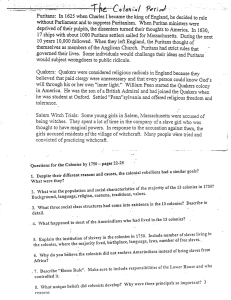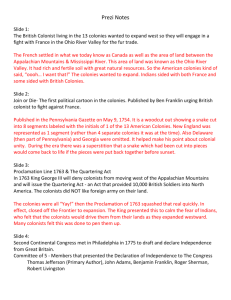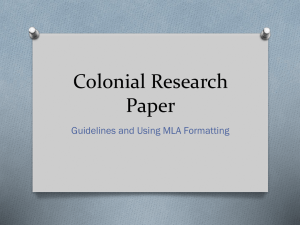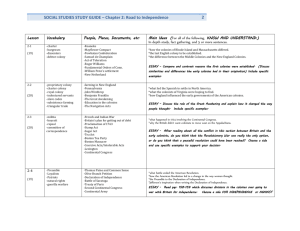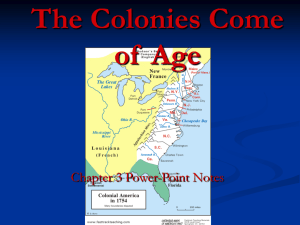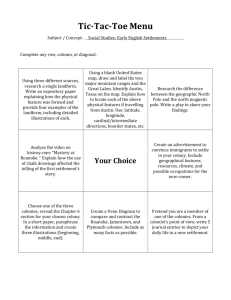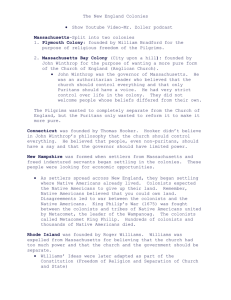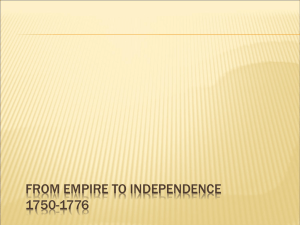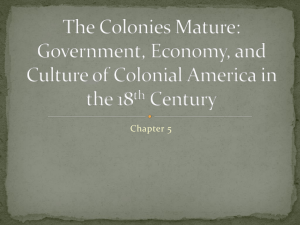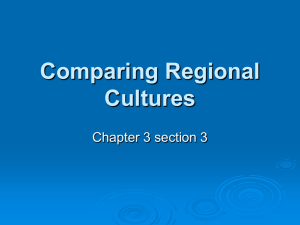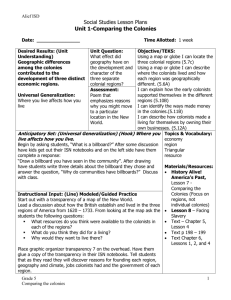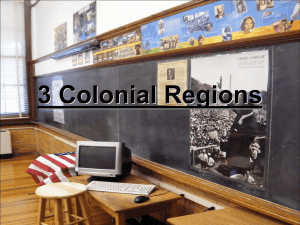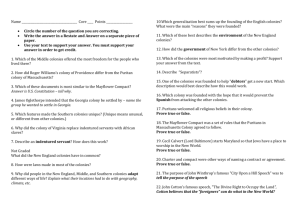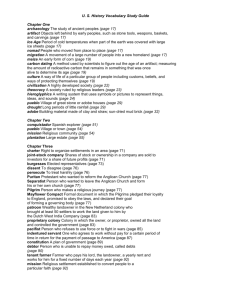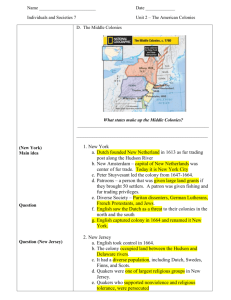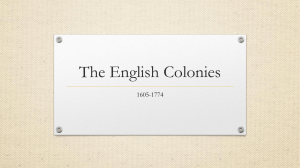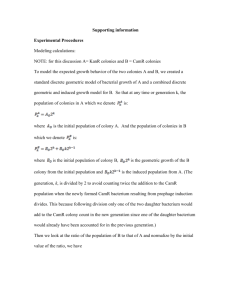US History in a Nutshell
advertisement
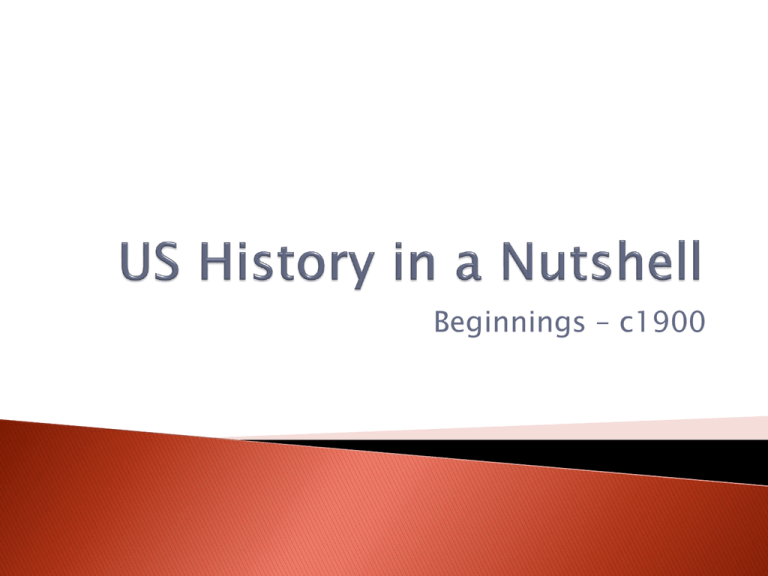
Beginnings – c1900 This Power Point is simply touching upon the most monumental issues pertaining to US History I, and highlighting the broad themes that we will be delving into in greater detail later this year. Basically, you should ALREADY KNOW THIS. If you don’t, blame your 9th grade teacher … or, if you slept through 9th grade … blame yourself. Although Europeans were said to have “discovered” America, Native Americans had been living here for centuries before they were dubbed “Indians” by Columbus. Disease was the greatest killer of Native Americans, wiping out up to 90% of certain tribes. Cultural Exchange: horses and livestock, technology, crops and goods First permanent English colony in the Americas was Jamestown, founded in 1607. ◦ To entice potential colonists, the headright system (promising land to those who could pay their own way) and indentured servitude began. Other important early colony: Plymouth. New England Colonies ◦ Religious freedom main motivator ◦ Puritans dominated New England – very devout Protestants, not very tolerant of other viewpoints. ◦ What are the New England Colonies? Middle Colonies ◦ More diverse: Dutch, French, and English settlements, therefore more tolerant. ◦ Quakers: William Penn (guess which colony he started?), pacifists. ◦ What are the Middle Colonies? Southern Colonies ◦ Heavily agricultural, due to cash crop of tobacco – slavery and Triangle Trade ◦ Religion of secondary importance. ◦ Virginia: House of Burgesses. ◦ Maryland: Religious toleration Mercantilism: economic system where a powerful country (ie: mother country; ie: England) tries to establish colonies and maintain a favorable balance of trade. This increases that powerful country’s wealth, power, and importance. ◦ Colonies a source of raw materials and market for new goods. Triangular Trade Enlightenment Ideals: rational thought as opposed to religious devotion ◦ Conception of God as “watchmaker” – creates the gadget, winds the gears, then hands off: deism. ◦ Deism mostly practiced by the elite. 1st Great Awakening: mass movement of religious fervor. French and Indian War: colonial extension of greater war between Britain and France (the Seven Years’ War). Lasted from 1754-1763. Britain vs. France, NOT France vs. Indians. Ended with Treaty of Paris in 1763, Britain gained a sizeable amount of land: all of French Canada and French land east of the Mississippi River. The Americans benefitted at the time, but this war would plague them soon enough ……. Content Question: ◦ Compare and contrast the Southern, New England, and Middle Colonies. What were the key cultural characteristics of the American colonies? Terms: ◦ ◦ ◦ ◦ Puritans and “City on a Hill” Quakers Triangular Trade French and Indian War After the French and Indian War, Britain was heavily in debt and burdened with financing its gigantic empire. Since the Americans had benefitted greatly from the outcome of the war, the British expected them to take some of the tax load. Americans were not exactly pleased with this arrangement … Incendiary Proclamations and Taxes ◦ Proclamation of 1763: ordered colonists to stay within a boundary (Appalachian Mtns.)as to not conflict with Native Americans. ◦ Stamp Act: tax on all goods requiring a stamp: wills, contracts, legal papers, playing cards. ◦ Townshend Acts: series of acts, including a quartering act, and taxes on goods. ◦ “No Taxation Without Representation!” ◦ Boston Massacre ◦ Tea Act and Boston Tea Party ◦ Intolerable Acts First Continental Congress: condemned Parliament for denying colonists the rights and privileges of British citizenship. ◦ Appealed to royals and to the British people Violence in your backyard: Lexington and Concord, 1775. Second Continental Congress: not ready to declare independence yet, sought compromise with Olive Branch Petition. Rejected by Brits. Sides: ◦ Patriots ◦ Loyalists Thomas Paine, Common Sense – call for independence. Declaration of Independence. France was our ally. Battle at Saratoga – turning point. General Washington became national hero. Treaty of Paris ended the war in 1783. Content Question: ◦ What were the causes of the American Revolution? Terms: ◦ “No taxation without representation” ◦ Declaration of Independence ◦ Loyalist



